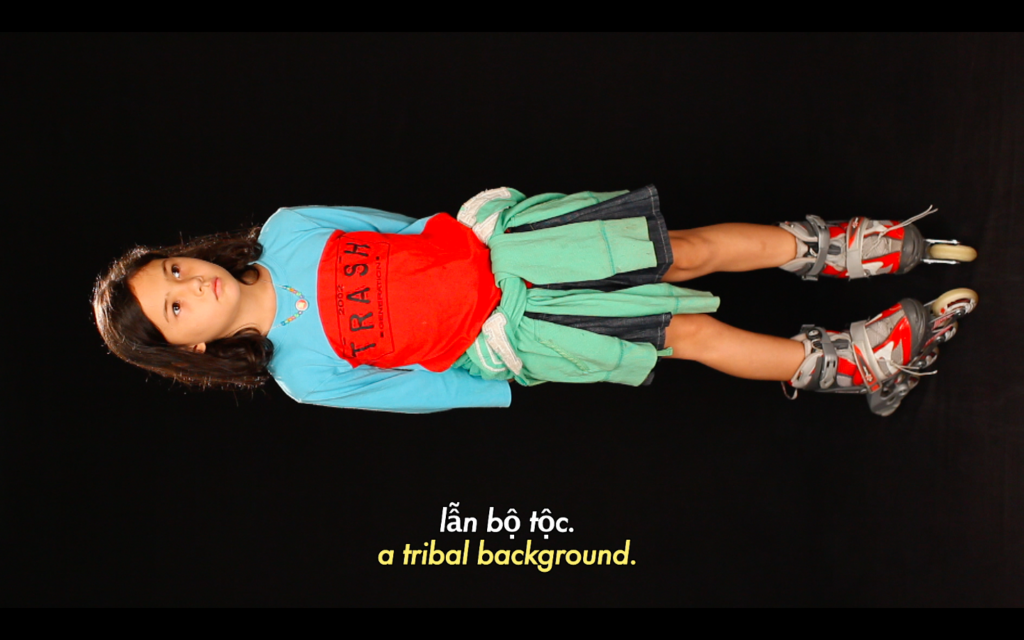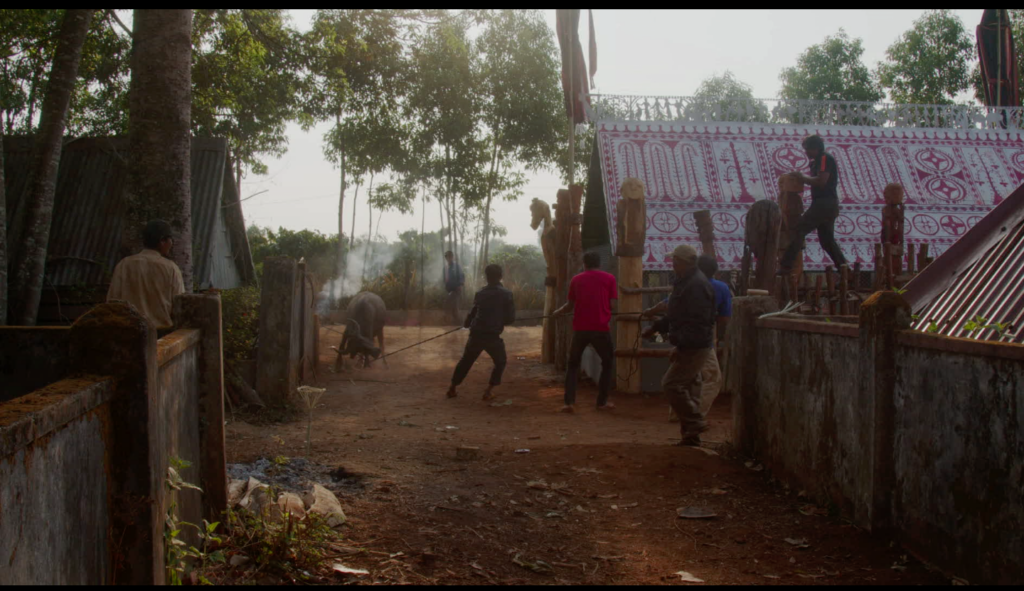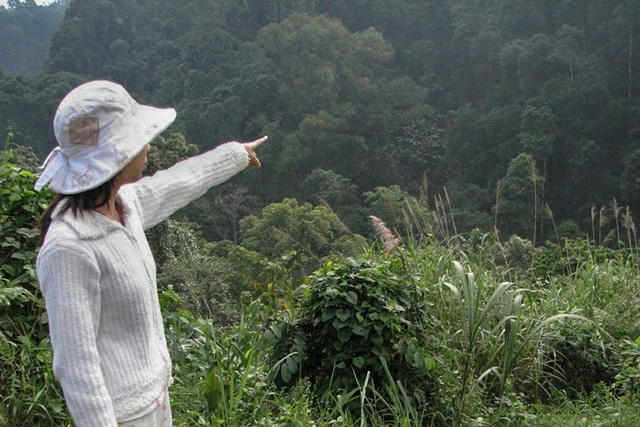Nguyễn Trinh Thi
Nguyễn Trinh Thi is one of Vietnam’s leading contemporary artists. Her moving image work engages with the ways in which memory, history and representation are part of broader structures of power, the legacies of colonialism and war, and the erasure of indigenous Vietnamese cultures.
Using montage, Nguyễn’s work draws on found footage and still images from postcards, photography, newsreels, Hollywood films and ethnographic footage alongside her own audio and visual recordings. Composed of different image media, her work is characterised by multiplicity; exploring both the ways in which we look at and create images, and what is not shown, said, or heard.
Presented in this artist focus are four moving image works from the Landscape series; Landscape Series 1# (Phong cảnh #1, 2013), Letters from Panduranga (2015), Fifth Cinema (Điện ảnh Thứ Năm, 2018) and How to Improve the World (Cải tiến Thế giới, 2021).
Nguyễn writes of her work: “I am interested in landscapes as quiet witnesses to history.” The films of the Landscape series explore affective ecologies; the ways in which cultural identity, narratives and historical legacies are inscribed onto land and affect environmental justice. Landscapes, for Nguyễn, are sites of entangled temporalities of the past, present and future. Ruins appear in different forms, speaking to these temporalities; traces of the destruction of war and colonialism on land, ruined temples of the past with indigenous cultures declared “extinct” although very much living, and the envisioning of a future nuclear disaster. In Letters to Panduranga one of the narrative voices states: “every landscape contains a power structure.”
A central thread across these works is the act of listening as a way of perceiving history through absences, invisible structures, and the limitations of representation. Listening, sound and music is explored most overtly in her latest work How to Improve the World, which questions and resists the westernised privileging of visual over aural practices, modes and traditions. In Letters from Panduranga, Nguyễn describes the Cham tradition in which the dead are buried on the chest of their deceased mothers, the spot marked only with a stone. Through oral histories, passed down by Cham women, a trace is kept of which stones mark the graves of whom. They are only named by voice and through mutuality, listening is crucial. In Nguyễn’s work, listening is also a methodology; a process of letting others speak, exploring the uncertain over the fixed, and an openness to encounter the not-yet-known. —Christina Demetriou
Fifth Cinema begins with a quiet statement “I am a filmmaker, as you know.” That text and what follows, by Maori filmmaker Barry Barclay, who coined the term ‘Fourth Cinema’ to distinguish Indigenous cinema from the established ‘First, Second, and Third Cinema’ framework, provides structure to Nguyễn’s hybrid essay film that moves on multiple cinematic and topical terrains. Eschewing voice in favour of the written word and juxtaposing moving images of the filmmaker’s own daughter with archival images of Vietnamese women seen through the lens of the “ship’s officers”, the film slowly leads the viewer through a narrative of colonialism, indigeneity and cinematic limitations in representation. —Nguyễn Trinh Thi
Run Time
Resisting the westernised reliance on images for creating narratives, telling stories and experiencing the world, How to Improve the World turns to music and sound as a way of perceiving through listening. Originally a 3-channel installation, this aurally centred work reflects on the past, present and future of indigenous cultures of the people in Vietnam’s Central Highlands.
Run Time
Nguyễn Trinh Thi is one of Vietnam’s leading contemporary artists. Her moving image work engages with the ways in which memory, history and representation are part of broader structures of power, the legacies of colonialism and war, and the erasure of indigenous Vietnamese cultures.
Nguyễn Trinh Thi’s Focus Programmes are supported by CREAM, University of Westminster and Centre for Screen Cultures at the University of St Andrew
Run Time
As the journey starts, wide empty landscapes make one wonder what one is looking for. A mysterious object? A crime scene? Something horrifying? The scenes are getting more and more specific, but they do not lead to any concrete solution—only an injury in place of a metaphor. —Nguyễn Trinh Thi
Run Time
An essay film in the form of a letter exchange, Nguyễn’s personal and poetic film explores the complex legacy of cultural and historical occupation, its ongoing presence in the indigenous Cham community, and her role as an artist.





